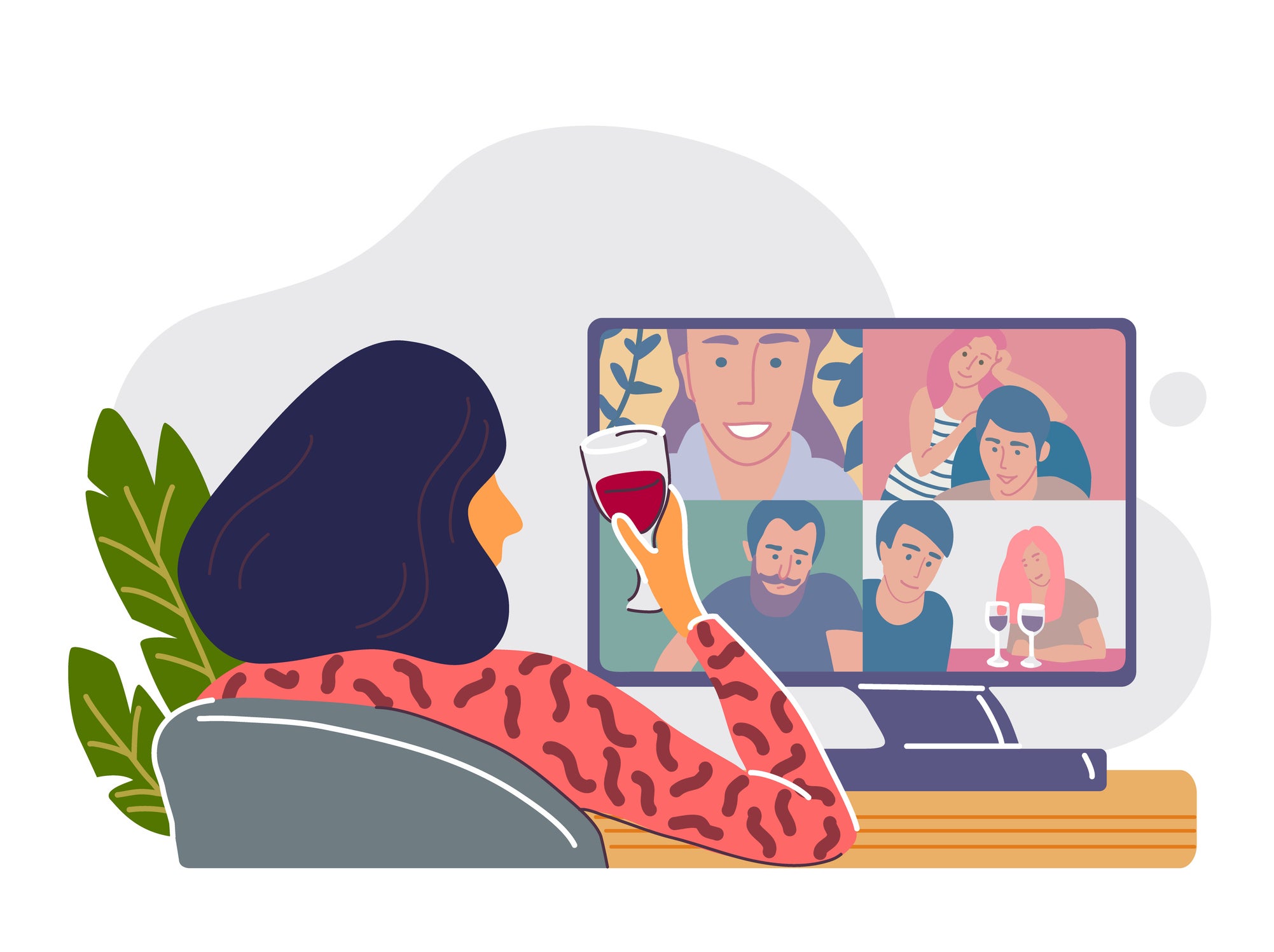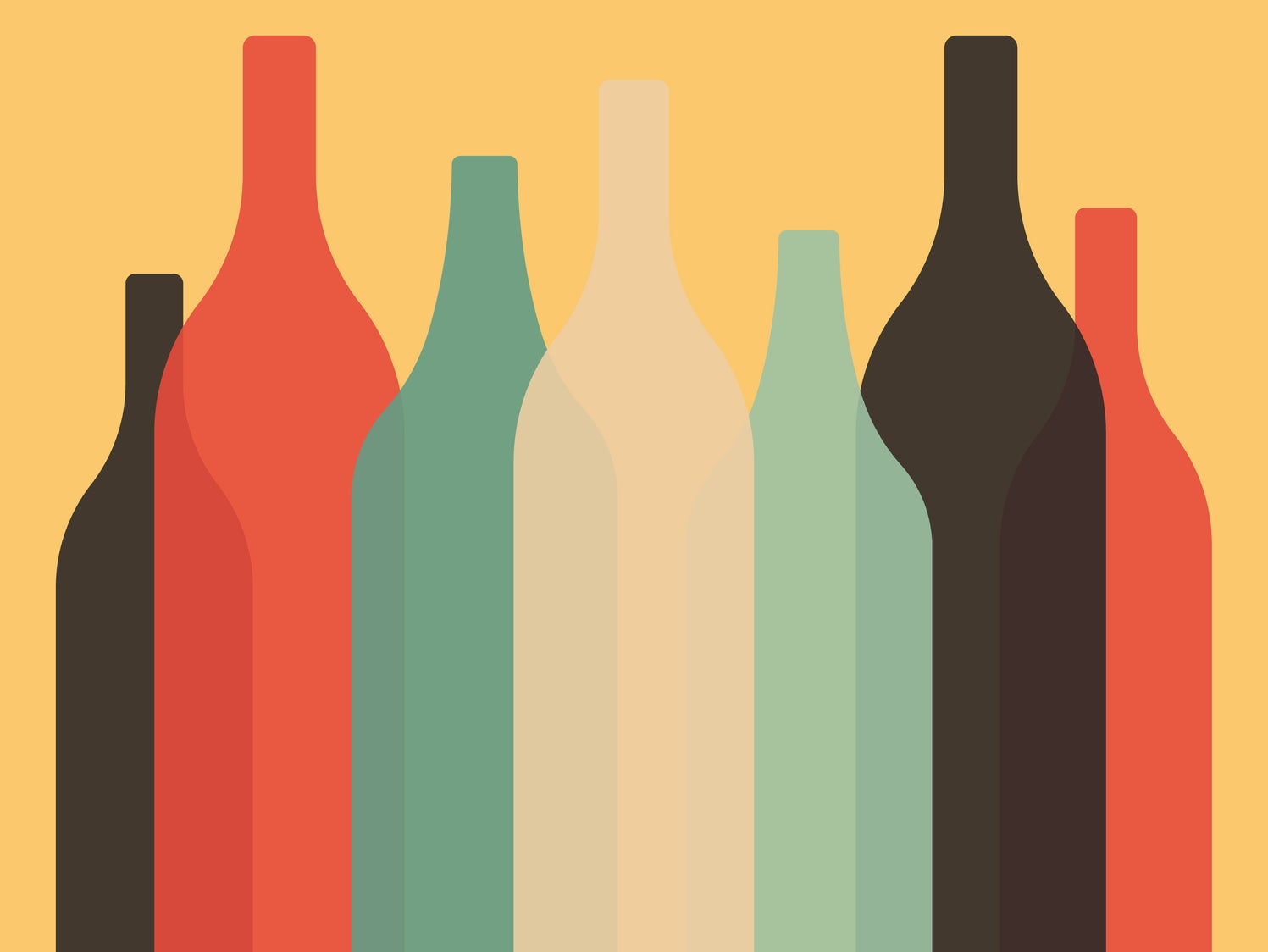How to reset your drinking
We can change our relationship with alcohol by examining the way in which we think about it, writes Julia Bainbridge

Seven years ago, Laura McKowen started a drinking journal. She knew alcohol was an issue for her – she knew it when her 4-year-old daughter helped her clean up the morning after a blackout, and she knew it the 10th time she drove to work hungover – but she needed to see it.
“Something very interesting happens when we put things on paper,” McKowen says, “because we have a lot of cognitive dissonance around drinking.” She couldn’t deflect around what she saw on the page, though: two bottles of wine a night. She got sober and went on to help others do the same through coaching and teaching workshops.
Last January, McKowen published We Are the Luckiest: The Surprising Magic of a Sober Life, and in March, she began hosting free sobriety support meetings on Zoom. By May, she had 12 employees and a company called The Luckiest Club, which offers classes and community support.
It’s no surprise McKowen found an eager client base. According to the 2019 National Survey on Drug Use and Health, more than 14 million American adults have alcohol use disorder, or AUD, a term medical professionals prefer to “alcoholism”.
You don’t need a diagnosis to find your drinking problematic, though. Alcohol can impair sleep, cause weight gain, aggravate anxiety or subtly change your personality. A study conducted by the RAND Corporation in September suggested that Americans are drinking 14 per cent more often in response to pandemic-related stress – especially women, whose heavy-drinking days (defined as four or more drinks within a few hours) increased by 41 per cent in 2020.
“When we go to work every day during non-pandemic times and don’t have an inordinate amount of stress, it’s fairly easy” to limit drinking to Friday nights, says James Murphy, a psychology professor and researcher at the University of Memphis who published a paper in November about alcohol and drug use during the pandemic. “When all of that structure is ripped away – when you’re worried about finances and your kids’ home-schooling and you don’t have to be anywhere in the morning, so no one will see if you’re hung over – alcohol can be way more difficult to manage.”
This is one reason you might be seeing more “dry January” hashtags on social media this year. One month off from drinking can be an opportunity for the sober-curious to examine their alcohol use.
If any of this sounds familiar, here are some suggestions to help navigate your relationship with alcohol – or bring it to an end.
Get curious
Take note of how much you’re drinking, as well as the pros and cons of that consumption. Are you opening that bottle of riesling because it pairs well with your Chinese takeout, or are you hoping the third glass will drown out those voices in your head that are telling you you’re mediocre? Study your own habits – and be honest about them.
To give you some perspective, the 2020-2025 Dietary Guidelines for Americans, issued by the federal government, recommend no more than one drink per day for women or two for men, and Murphy suggests the free alcohol screener at the website CheckUp & Choices. Take the questionnaire, which is used by healthcare providers, and assess your drinking using its score. Similarly, Drinks Meter is an app with a daily calculator that could helps you put your own behaviour into perspective using an anonymous database of over 6,000 people’s drinking habits worldwide.
“You don’t have to have things figured out, aside from wanting to make a change,” says Holly Whitaker, author of Quit Like a Woman: The Radical Choice to Not Drink in a Culture Obsessed with Alcohol and creator of an online recovery program called Tempest. “You’re doing it right now, by being brave enough to read this article.”
Clear out the alcohol
If you’ve decided alcohol is having a negative impact on your life, try distancing yourself from it. Remove bottles from your physical spaces
If you’ve decided alcohol is having a negative impact on your life, try distancing yourself from it. Remove bottles from your physical spaces and booze-related content from your virtual ones. Cleanse your phone and computer of anything that might tempt you to drink.
It’s not about having a siloed existence or avoiding anything that creates an urge to drink, says McKowen: it’s about dismantling the myth that drinking is what makes life fun. “You want your online world to reflect the energy of where you’re going,” she says.
Then try not to drink for a month. Pick a date and stick with it. Experts say this is the best way to evaluate your alcohol use, and it’s a jump-start on reducing your consumption, if that’s what you decide to do.
“Detoxification literally means removing the toxin,” says George Koob, director of the National Institute on Alcohol Abuse and Alcoholism. This can be done on your own unless you have moderate to severe AUD, in which case you should seek medical help. Untreated severe alcohol withdrawal can be fatal.

But fill the space with something else
Alcohol does have positive effects: it squashes tension and lowers inhibitions. Remove it and you will miss it, at least initially.
Identify other activities you love and increase them, like exercise or spending time with friends.
“We need another outlet to fill the void that alcohol leaves,” says Murphy.
Find your people
You are more likely to successfully abstain from alcohol if you have support. “Tell as many of your friends and family members (who it feels safe to) as you can about this,” Murphy says.
It probably took a long time to develop your current relationship with alcohol. Changing it will require sustained effort and might take several attempts
It also helps to connect with others who share your goal. In-person support meetings have become difficult to gain access to in the pandemic, but help has proliferated online. Free sobriety support communities with virtual meetings include Alcoholics Anonymous, SMART Recovery, the She Recovers Foundation, In The Rooms, Eight Step Recovery, Refuge Recovery, Recovery Dharma, and LifeRing, among others. Good lighting and charisma are not required or expected; join from your phone while walking in a park or sitting in your car.
“I go to two meetings a day now,” says Braunwyn Windham-Burke, a reality TV star whose sobriety journey is playing out on Season 15 of The Real Housewives of Orange County. “It’s so easy, because it’s in my bedroom.”
One Tempest member, Valentine Darling, 32, of Olympia, Washington, finds virtual meetings to be more LGBTQ-friendly as well: “I feel safe sitting next to my house plants, so I’m more fully present and I’m also more authentically me – I wear dresses and express my gender queerness without worrying that anyone will follow me home.”
Many organisations have meetings specifically for people of colour, certain age groups or even professions. Ben’s Friends is a sobriety support group geared towards restaurant workers. “We speak a common language in restaurants,” says Steve Palmer, one of the group’s founders. “You find out that, ‘OK, he’s a line cook. She’s a bartender. These are my people.’”

Understand what recovery means for you
If your month of sobriety was relatively easy to accomplish, then simply consider it a reset. But if you’re having trouble sticking to your plan, you might need more than group meetings. You may have AUD, which is a disease, not a moral failing, and it requires treatment like any illness. The most effective form of recovery usually involves long-term behavioural therapies and community support as well as medication, if needed.
The NIAAA navigator can help you find the right treatment for you. The Substance Abuse and Mental Health Services Administration at the Department of Health and Human Services also has an online treatment locator.
Be flexible
If you decide you want to maintain your sobriety long-term, understand that treatment plans may vary over time. “The same practices that helped you quit drinking might not keep you sober later on,” Whitaker says. Maybe you’ve unlocked a trauma along the way, maybe you’re going through a divorce, or maybe you’re living in the midst of a pandemic.
You haven’t done anything wrong; you just need a fresh set of tools.
Murphy recommends continuing to keep a log of alcohol use. Apps like DrinkControl and Drinks Meter can help, but even using a pen and paper to make note of any benefits you see can keep your momentum going. When you backslide, make note of that — and how you feel about it.
It probably took a long time to develop your current relationship with alcohol. Changing it will require sustained effort and might take several attempts. If the first one doesn’t last, Koob says, don’t judge yourself harshly. Just try again.
© The New York Times
Join our commenting forum
Join thought-provoking conversations, follow other Independent readers and see their replies
Comments


Bookmark popover
Removed from bookmarks